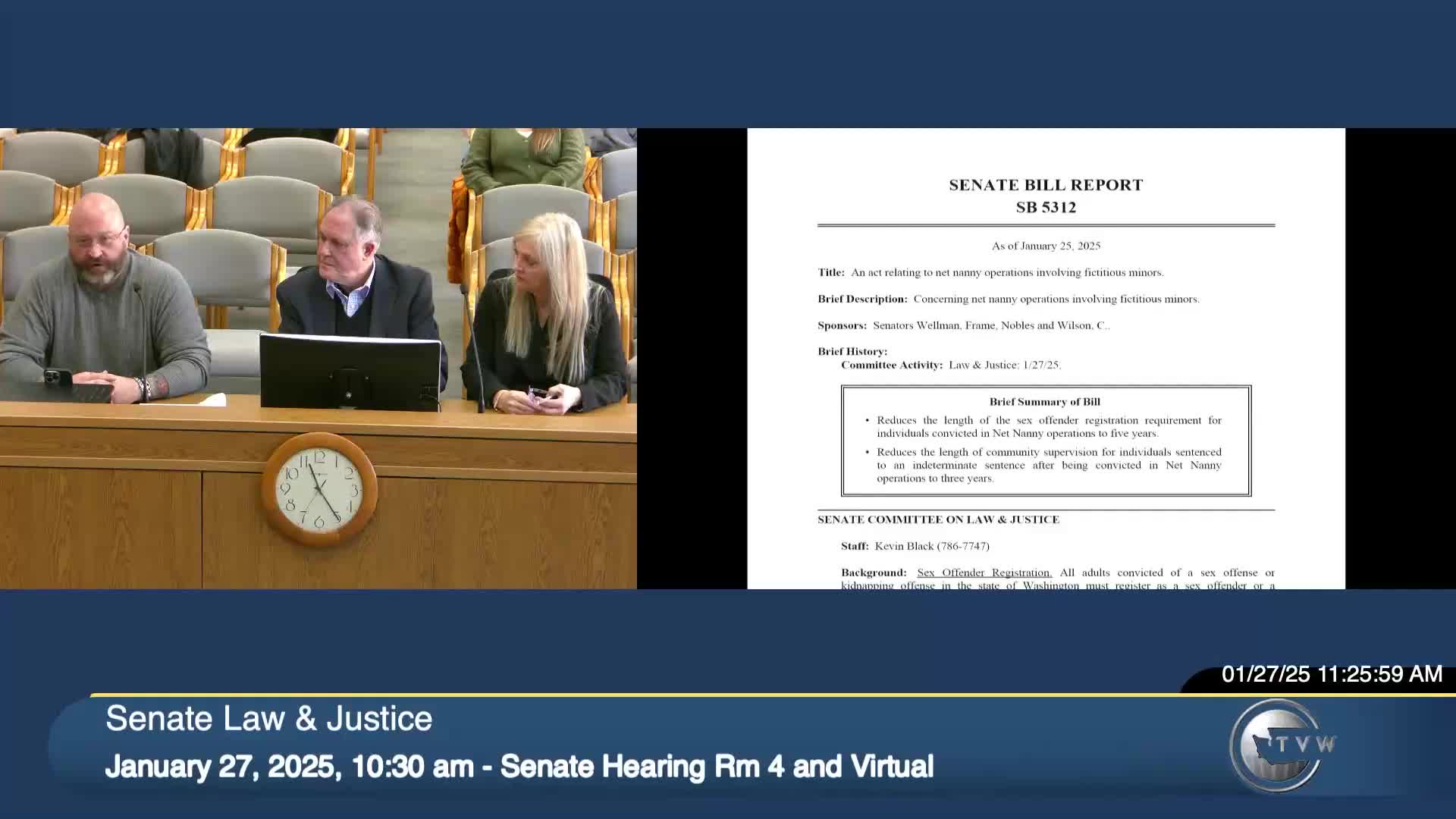Prosecutors back bill banning child sex dolls; sentencing commission and defense groups urge lower seriousness ratings
Get AI-powered insights, summaries, and transcripts
Subscribe
Summary
Senate Bill 5227 would create new felonies for manufacturing, trafficking, importing and possessing child sex dolls and require fines to the Child Rescue Fund. Prosecutors supported a ban; the Sentencing Guidelines Commission and defense groups raised proportionality concerns about seriousness-level rankings.
Senate Bill 5227 (as substituted) would create new criminal offenses for activities involving child sex dolls: manufacturing, trafficking, sending or bringing the dolls into the state, and possession. Staff told the committee the bill defines "child sex doll" as an anatomically correct doll, mannequin, robot or other object intended for sexual acts or stimulation that resembles or is advertised as a minor. Each offense carries felony classifications and mandatory fines required to be deposited in the state's Child Rescue Fund, staff said.
Senator Tina Orwall, prime sponsor, said the measure aims to prevent devices that could normalize sexual activity involving children. "If someone was a sex offender in treatment, having access to these kind of things would…be contraindicated," she said, describing the bill as targeted to prevent desensitization and to support therapeutic goals.
Russell Brown, executive director of the Washington Association of Prosecuting Attorneys, told the committee prosecutors support the bill because possession and use of child-like sexual devices, he said, can "legitimize and normalize" abuse. Brown noted several other jurisdictions have enacted similar prohibitions and said Canada classifies similar items as child sexual abuse material.
The Washington State Sentencing Guidelines Commission signed in as "other," expressing concern that the bill places doll offenses at seriousness levels 6 and 7 on the sentencing grid. Carrie Anne Yetzer, the commission's coordinator, told senators that comparable offenses in the existing grid involve harm to actual children and urged careful review of proportionality.
Defense organizations echoed proportionality concerns at the hearing. Emily Gause, testifying for the Washington Association of Criminal Defense Lawyers and the Washington Defender Association, said there is no clear evidence that possession of a child sex doll increases harm to actual children and recommended redrafting the bill to assign a lower seriousness level that better matches culpability.
Staff said a fiscal note has been requested but not yet received. The committee convened public testimony and heard both support from prosecuting authorities and concerns about sentencing proportionality from the Sentencing Guidelines Commission and defense groups. No committee vote or final action on SB 5227 was recorded following the hearing.
